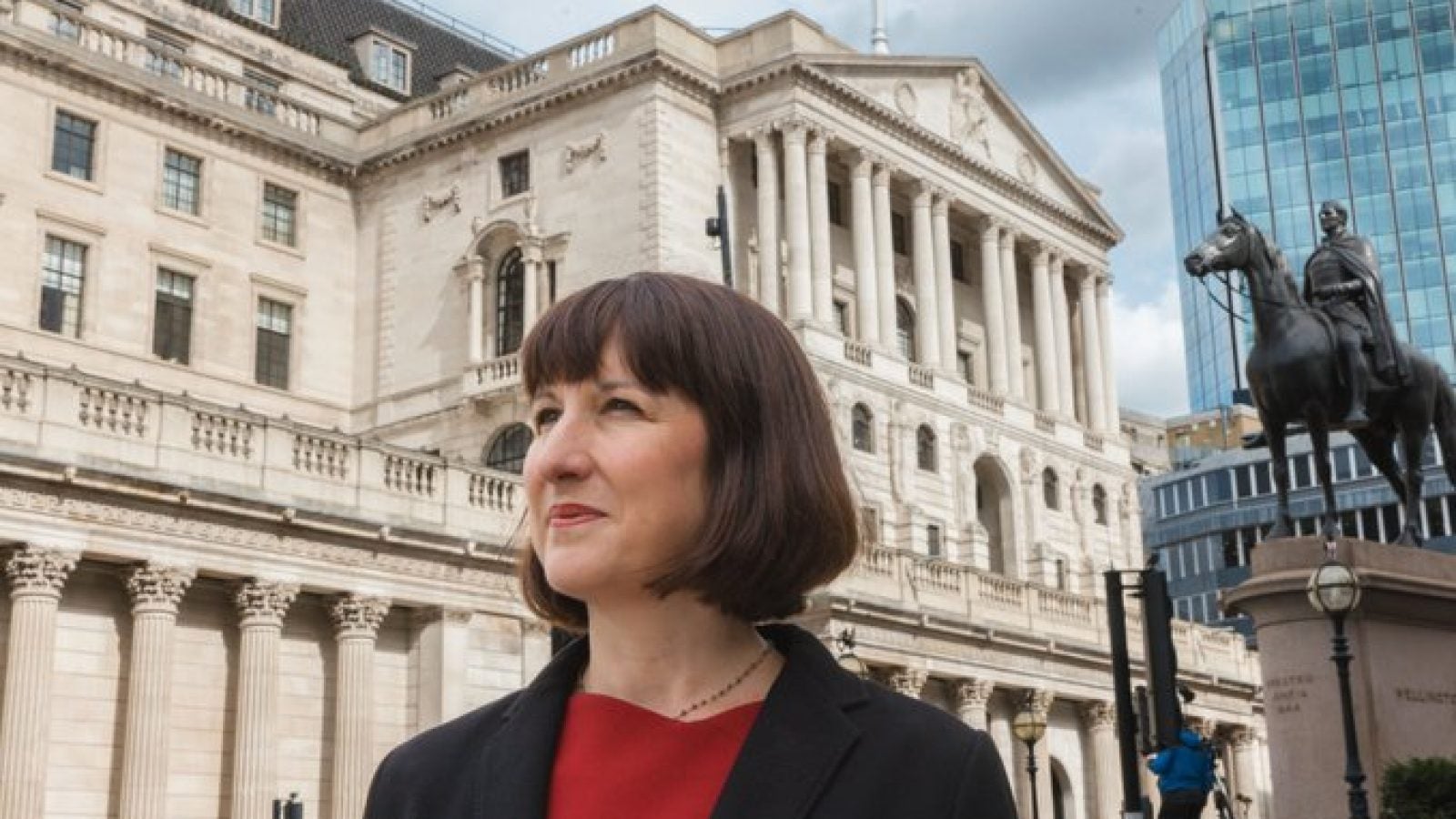Shrewd, partisan, ruthless… Rachel Reeves has learned from the best
By warning that the government is conning the public into believing Britain has turned a corner, the shadow chancellor has demonstrated the same canniness of her predecessor Gordon Brown, says John Rentoul


For the next few months at least, Rachel Reeves has one job – to make people doubt good economic news when they hear it.
And they will, because the British people are feeling the pinch, and are unwilling to give Rishi Sunak and Jeremy Hunt the benefit of the doubt if there are signs of a slight easing in the cost of living crisis.
Reeves is a highly political shadow chancellor who has learned from Gordon Brown. His genius was to offer stability and reassurance while drawing dividing lines between New Labour and a Conservative Party that was extreme, incompetent and out of touch.
There wasn’t much to her speech today, but what there was was shrewd. First, the location, in the City of London – the very place where the markets took fright at Liz Truss’s unfunded tax cuts. Reeves mentioned Truss only once in the speech, but once was enough.
She tied Sunak and Hunt to Truss: “It’s party first, country second. Chaos over stability. Recklessness over responsibility. Decline over prosperity.” Sunak and Hunt might protest that they rescued the economy from Truss’s wrong turn, but that isn’t how the voters see it. They see the Tories as responsible for everything in the past 14 years, and Reeves deftly reinforced that perception.
Second, her warm-up act: she was introduced by Nick Boles, the former Conservative minister who is now a Labour supporter. An embodiment of the human tide that is flowing in Labour’s direction.
But the main point of her speech was to anticipate the positive news on the economy on which Sunak and Hunt are banking. Inflation will fall to its target of 2 per cent; interest rates might come down again; growth might resume, albeit feebly.
So Reeves announced: “Today, I want to take head on the claims we can expect to hear from Rishi Sunak and Jeremy Hunt in the weeks ahead.” The prime minister is already claiming that the economy has “turned a corner”. She knows that most people don’t believe it, and again, she wants to reinforce that perception.
“No, we won’t have turned a corner until working people feel they are better off,” she said. “If Jeremy Hunt wants to call it a ‘technical’ recession, then I assume he’s comfortable calling it a ‘technical’ recovery.” It is not a recovery for families “struggling” with higher mortgage payments, she said.
Because the election is now no more than seven months away, she can rely on the lag between official statistics and the perception that things are getting better.
It is jiu-jitsu politics, using the weight of existing disapproval of the Tories to keep Sunak and Hunt pinned down. I have heard Labour voices in Westminster muttering that Reeves is “too cautious”, and that she lacks the “utter ruthlessness” shown by George Osborne when he was shadow chancellor, but I disagree.
She may not be such a risk-taker, but she is quietly ruthless. Just as Osborne never let up on accusing the Labour government of having crashed the economy, which was untrue but which fitted with the perception of many voters, Reeves says of the Tories: “They’ve crashed the car and left it by the side of the road.”
That is what most voters think. They don’t give Sunak credit for putting right Truss’s mistakes; they blame him for everything done in the Tory party’s name. And they won’t give Sunak much credit if a small part of the biggest fall in living standards in generations is recovered by the end of this year.
Reeves sticks to her messages with iron discipline. She offers warm words about “change” and the “huge potential” that is waiting to be unleashed by a Labour government, but nothing too specific. Indeed, she has redefined change as keeping things the same: “After years of political chaos and short-term thinking, at this election, stability is change.”
How very like Gordon Brown – and how likely to be as successful as Brown was in the early years of New Labour. In fact, she is better than Brown, because she is not constantly trying to undermine the Labour leader.
Join our commenting forum
Join thought-provoking conversations, follow other Independent readers and see their replies
Comments
Bookmark popover
Removed from bookmarks